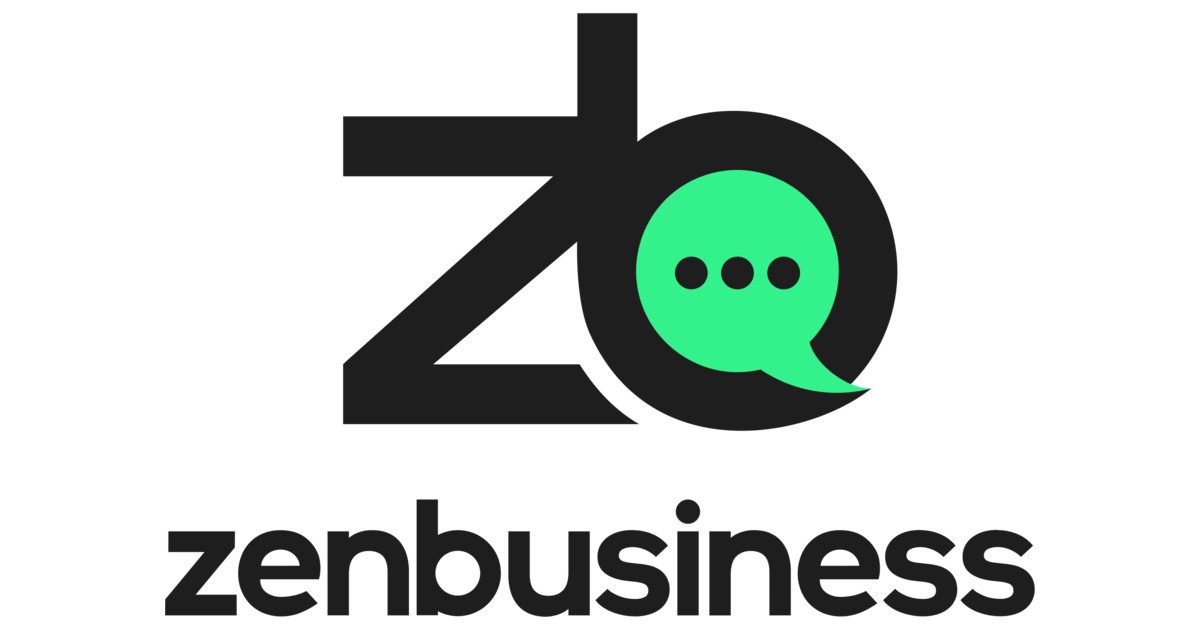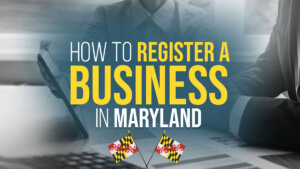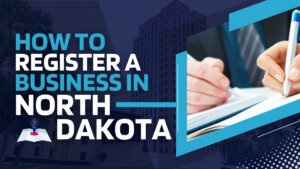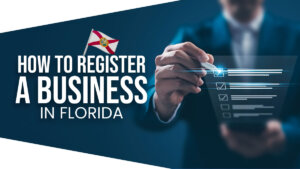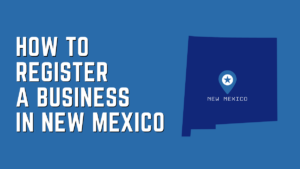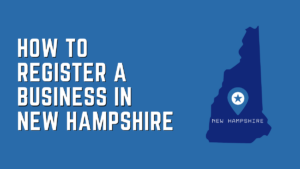Starting a business can be thrilling and fulfilling, though registering it might seem intimidating. With many steps and key choices to make, it’s understandable why many budding entrepreneurs feel swamped. But worry not, registering your business doesn’t have to be tough.
In this blog post, we’ll walk you through the entire process step-by-step, offering tips and resources to make your path smoother. Whether launching a brand-new venture or registering an existing one, this guide will help you confidently and easily tackle the process in seven easy steps.
If you still find the process overwhelming, we’ve compiled a list of top-notch business registration services, like Northwest Registered Agent, that can handle it for you.
>> Register a Business With Northwest >>
How to Register a Business in 7 Simple Steps
Registering a business is a breeze when you know what to do. Follow these 7 steps to get your business up and running in no time:
Step 1: Choose Your Business Structure
The best choice for your business structure depends on the type of business you’re starting and your expansion plans. Let’s explore the different types of incorporated and unincorporated businesses you can choose from and how each functions.
Sole Proprietorship
There’s no separation between you and your business in this unregistered business. You’ll keep all the profits but also pay income tax on them. Your assets can pay business debts or cover costs arising from its actions, such as if a customer is injured while using your product or service.
General Partnership
A general partnership involves two or more people owning and operating the business. Like a sole proprietorship, the partners are fully liable for the business’s actions. They are personally responsible for covering debts, taxes, and obligations arising from legal rulings.
Limited Partnership
In a Liability Partnership, there’s at least one general partner who runs the company and is fully liable for any debts or losses. The other partners, known as limited partners, provide financial investment but aren’t involved in day-to-day operations. Their liability is limited to their investment in the business.
Limited Liability Partnership
In an LLP, all partners are joint owners of the company. Their liability for the business’s debts and actions is proportional to their initial investment. This means they can only lose as much as they’ve invested. In some areas of the US, LLPs may be restricted to certain industries and professions, so check local regulations.
Limited Liability Company
Forming an LLC creates a legal separation between the business owners and the business itself. Once incorporated, an LLC is recognized as a legal entity in its own right. This structure is great for small business owners because your assets can’t be used to satisfy business liabilities, and there are tax benefits. It’s also simpler to register than a full-fledged corporation.
C Corporation
C Corporations are typically large entities with multiple investors and shareholders. They legally separate the owners’ and business’s assets and liabilities. Establishing a C Corporation comes with responsibilities like holding annual meetings and having a board of directors voted in by shareholders.
Remember that you’ll need to register your business if you choose a structure that requires incorporation. Understanding the specifics of each structure can help you make an informed decision that aligns with your business goals and growth plans.
Step 2: Register Your Business Name
There are three ways you can name your business: by registering a legal entity name, a trademark, or by having a legal name but operating under a different one. Naming rules vary from state to state, so check the requirements for the state where you plan to register.
Similar to incorporating your business, your chosen naming path depends on your entity’s needs and circumstances.
Follow all three paths to ensure no one else uses your name, or you can pick just one option. While it’s not mandatory, using the same name for each registration method often makes sense.
Let’s explore each naming option in detail.
Entity Name
Most states require businesses to register a legal entity name, which the state uses to identify the company. Entity names must be unique, ensuring no other business shares your name.
State naming laws differ. Some states have guidelines for company suffixes (e.g., incorporated, limited, corporation), while others require the name to reflect the type of business being registered.
Trademark
A trademark protects your business name nationally. Once trademarked, no one else can use that name in the US.
If you have a name in mind, search the US official trademark database to ensure it’s not already trademarked. This step is crucial because infringing on someone else’s trademark is a criminal offense and can lead to legal action.
Doing Business As (DBA)
You can also register your business under one official name while operating under another, known as a Doing Business As (DBA) name. DBAs are subject to federal trademark laws, but there’s no requirement for a DBA to be unique at the state level.
Step 3: Consider Taxes and Other Costs
Each state has its own set of rules for business registration and taxes. This means registering in a specific state might offer tax and cost benefits. If you plan on doing business in multiple states, ensure your business qualifies to operate in each one. You can use business registration services like Northwest and Tailor Brands to simplify the process.
Step 4: Register and Acquire Licenses and Permits
The process of incorporating your business depends on the local authority where you plan to register. While regulations vary by state, there are a few universal steps.
First, you need an Employer Identification Number (EIN). This tax ID number ensures your business can pay taxes, claim deductibles, hire employees, and handle other operations. You’ll need several key pieces of information and documentation, including:
- Articles of formation or incorporation
- An official business name
- An official business address
- Identifying information about the company owner(s)
The paperwork required for submission to your local authority varies based on the type of business you plan to register.
Document Type:
- Corporation: Articles of incorporation
- LLC: Articles of organization
- LLP: Partnership agreement
Governance:
- Corporation: Organizational bylaws
- LLC: The operating agreement
- LLP: Partnership agreement
Ownership:
- Corporation: Share certificates
- LLC: Member certificates
- LLP: Partnership agreement
Tax:
- Corporation: EIN (Employer Identification Number)
- LLC: EIN (Employer Identification Number)
- LLP: EIN (Employer Identification Number)
Step 5: Open a Bank Account for Your Business
Once you have your EIN, you can open a business bank account. A business bank account is mandatory for LLPs, LLCs, and corporations. Sole proprietors and unincorporated partnerships aren’t required to have separate personal and business bank accounts.
Opening a business account is as simple as visiting your local bank and completing the necessary paperwork. It’s wise to compare rates and perks from different banks before choosing one.
Even if you’re a sole proprietor or part of an unincorporated partnership, it’s smart to have a separate company bank account. This keeps your personal finances distinct from your business finances and makes future incorporation smoother.
Step 6: Protect Your Intellectual Property
Protecting your valuable intellectual property (IP) might be crucial depending on the type of company you’re starting.
Most businesses want to ensure others don’t copy their name and logo. Depending on whether you sell goods or offer services, safeguard your product designs or creative works like writing, designs, or music.
There are several ways to protect your IP. It’s wise to start these applications early to prevent others from using your ideas.
Trademark
A trademark is a word, phrase, symbol, sign, or insignia that sets a product or service apart from others. Think of Nike’s Swoosh or McDonald’s “I’m lovin’ it.”
To be recognized, trademarks must be registered, which typically takes around four to six months. Once registered, your trademark is protected throughout the USA, and you can take legal action against anyone who uses it without your permission.
Copyright
Original works like written pieces, software, web content, films, sound recordings, and images are protected by copyright law. Only the creator can distribute, reproduce, create derivative works from, or sell the intellectual property.
Copyright is automatically granted when you create something new. These rights can also be transferred to another owner through sale, gift, or agreement.
Patent
If you invent a new product or piece of machinery, you’ll want to patent it. A patent grants the holder exclusive rights over an item, preventing others from making, selling, or importing it for a specified period.
The patent process is complex and can take up to five years, so starting early is wise if you have a unique invention to protect.
Step 7: Set Up Your Payment Infrastructure
You’ll need a seamless way to accept payments to get your business ready to start serving customers immediately after registration.
Pay.com provides a full-service payment infrastructure with no-code solutions and developer-friendly APIs. It’s flexible, easy to set up, and customizable to suit your business goals.
With Pay.com, you can accept various payment methods, including credit and debit cards, ACH transfers, and digital wallets like Apple Pay and Google Pay, among others. No matter where you register your company or sell your goods or services, Pay.com lets your customers pay using their preferred methods on a secure platform.
Best Business Registration Services
Business registration services support entrepreneurs and small business owners looking to set up and manage their companies. These services help with everything from registering a new business entity and obtaining necessary business licenses and permits to maintaining compliance with state and federal regulations.
They offer a variety of solutions to help businesses get started and stay on track. Some services provide personalized consultation and ongoing support to help businesses thrive in their ventures.
Northwest Registered Agent is an online business registration service that helps entrepreneurs and small business owners start and grow their companies. They specialize in personalized support and provide registered agent services, compliance management, and document filing services.
They offer business formation services for various entities, including LLCs, corporations, and nonprofits. With a commitment to quality and exceptional customer service, they are a trusted partner for businesses of all sizes.
Tailor Brands is an online service that helps businesses create a professional and cohesive brand identity. They offer branding packages that include logo design, business card design, and social media branding. Tailor Brands also provides design tools and resources to help businesses create and customize their branded assets.
ZenBusiness is an online business formation service offering a range of services to help entrepreneurs and small business owners start and grow their companies.
They provide affordable business formation packages that include registered agent services, annual report filing, and other features. ZenBusiness also offers ongoing support and resources to help businesses stay compliant and succeed.
BusinessRocket LLC is a consulting company that helps entrepreneurs and businesses incorporate their companies. They provide services for new businesses, including LLC name clearance, preparation and filing of articles of organization, consultation services, compliance analysis, compliance guard alert, and lifetime customer support.
They also offer legal assistance, tax compliance, and business entity registration. BusinessRocket aims to offer competitive prices and free consultation services for aspiring LLC entrepreneurs specializing in LLC registration.
Swyft Filings is an online business registration service specializing in fast and easy business formation. They offer services, including LLC formation, incorporation, and compliance. Swyft Filings provides personalized support to help businesses navigate the formation process and stay compliant with state and federal regulations.
Bizee specializes in fast and affordable business formation services. They offer packages that include registered agent services, compliance management, and document filing. Bizee’s user-friendly and streamlined platform makes the business registration process easy and hassle-free.
They also provide ongoing support and resources to help businesses stay compliant and grow. With a focus on affordability and convenience, Bizee is a great option for entrepreneurs looking to start a new business or register an existing one.
>> Consider Bizee to Register a Business >>
Disclosure: We earn commissions if you shop through the links below. The order in which services appear may or may not depend on the payment level.
Other Ways to Register a Business in the US
Register With Federal Agencies
Most businesses don’t need to register with the federal government to become a legal entity beyond obtaining a federal tax ID. Small businesses might register federally for trademark protection or tax-exempt status.
To trademark your business, brand, or product name, file with the United States Patent and Trademark Office after forming your business. Register your business as a tax-exempt entity with the IRS if you seek tax-exempt status for a nonprofit. For an S corp, you’ll need to file form 2553 with the IRS.
Register With State Agencies
If your business is a Limited Liability Company (LLC), corporation, partnership, or nonprofit corporation, you’ll likely need to register in any state where you conduct business activities.
Typically, you’re considered to be conducting business activities in a state when:
- Your business has a physical presence in the state
- You often have in-person meetings with clients in the state
- A significant portion of your company’s revenue comes from the state
- Any of your employees work in the state
Some states allow online registration, while others require you to file paper documents in person or by mail. Most states require registering with the Secretary of State’s office, a Business Bureau, or a Business Agency.
Register With Local Agencies
Typically, you don’t need to register with county or city governments to form your business. However, if your business is an LLC, corporation, partnership, or nonprofit corporation, you might need to file for licenses and permits from the county or city.
Some counties and cities also require you to register your DBA (Doing Business As) name if you use one. Local governments set the rules for registration, licensing, and permitting requirements. Visit local government websites to find out what you need to do.
Benefits of Registering Your Business
Registering a business isn’t mandatory in the US, but it offers several benefits you might want to consider.
Registering your business can determine:
- Your tax rates
- The deductions you’re entitled to make
- Who is liable for your business’s obligations
- Your reporting requirements
Find Out If You Need to Register Your Business
Your location and business structure determine how you’ll need to register your business. Decide on those factors first, and the registration process becomes straightforward. For most small businesses, it’s as simple as registering your business name with state and local governments.
In some cases, you don’t need to register at all. If you conduct business under your legal name, no registration is required. However, if you don’t register, you could miss out on personal liability protection, legal benefits, and tax advantages.
Do I Need to Register an Online Business in the US?
In the US, online businesses must follow the same rules as brick-and-mortar businesses. As a business owner, it’s your choice whether to register. Sole proprietors and general partners don’t need to register, but Limited Liability Partnerships (LLPs), Limited Liability Companies (LLCs), and corporations do.
Consider where you’ll conduct business when deciding whether to register your online business. Registering your entity can add credibility if you plan to sell goods or services nationally or internationally.
Online shoppers are savvy and often research before making a purchase. A company suffix (e.g., Limited, Incorporated, Corporation) can help potential customers see your business as legitimate.
If you feel lost about these matters, getting help from online registration services like Northwest, Tailor Brands, Swyft Filings, or ZenBusiness can be really beneficial for your business.
>> Register a Business With Northwest >>
How to Register a Business – Frequently Asked Questions
Bottom Line on How to Register a Business
Registering a business in the US might seem daunting, especially with paperwork that could impact your operation’s success. Knowing exactly what needs to be done and following the steps outlined above can reduce stress and ensure correct registration the first time.
Northwest Registered Agent is our top pick for business registration services. They offer comprehensive services, from registration to business licenses, permits, and report filings.
 Sections of this topic
Sections of this topic



